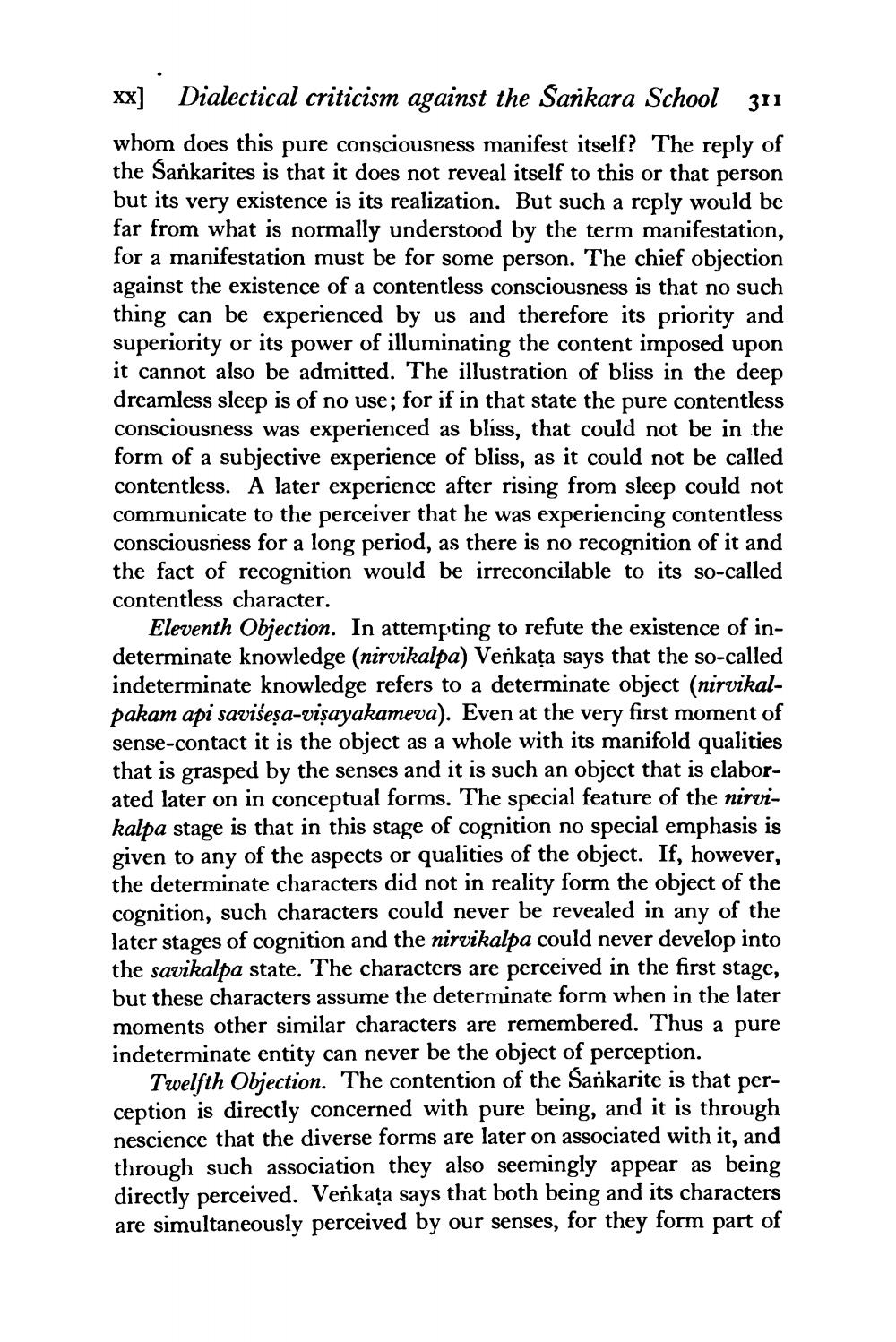________________
xx]
Dialectical criticism against the Sankara School 311
whom does this pure consciousness manifest itself? The reply of the Sankarites is that it does not reveal itself to this or that person but its very existence is its realization. But such a reply would be far from what is normally understood by the term manifestation, for a manifestation must be for some person. The chief objection against the existence of a contentless consciousness is that no such thing can be experienced by us and therefore its priority and superiority or its power of illuminating the content imposed upon it cannot also be admitted. The illustration of bliss in the deep dreamless sleep is of no use; for if in that state the pure contentless consciousness was experienced as bliss, that could not be in the form of a subjective experience of bliss, as it could not be called contentless. A later experience after rising from sleep could not communicate to the perceiver that he was experiencing contentless consciousness for a long period, as there is no recognition of it and the fact of recognition would be irreconcilable to its so-called contentless character.
Eleventh Objection. In attempting to refute the existence of indeterminate knowledge (nirvikalpa) Venkata says that the so-called indeterminate knowledge refers to a determinate object (nirvikalpakam api saviseṣa-viṣayakameva). Even at the very first moment of sense-contact it is the object as a whole with its manifold qualities that is grasped by the senses and it is such an object that is elaborated later on in conceptual forms. The special feature of the nirvikalpa stage is that in this stage of cognition no special emphasis is given to any of the aspects or qualities of the object. If, however, the determinate characters did not in reality form the object of the cognition, such characters could never be revealed in any of the later stages of cognition and the nirvikalpa could never develop into the savikalpa state. The characters are perceived in the first stage, but these characters assume the determinate form when in the later moments other similar characters are remembered. Thus a pure indeterminate entity can never be the object of perception.
Twelfth Objection. The contention of the Sankarite is that perception is directly concerned with pure being, and it is through nescience that the diverse forms are later on associated with it, and through such association they also seemingly appear as being directly perceived. Venkata says that both being and its characters are simultaneously perceived by our senses, for they form part of




